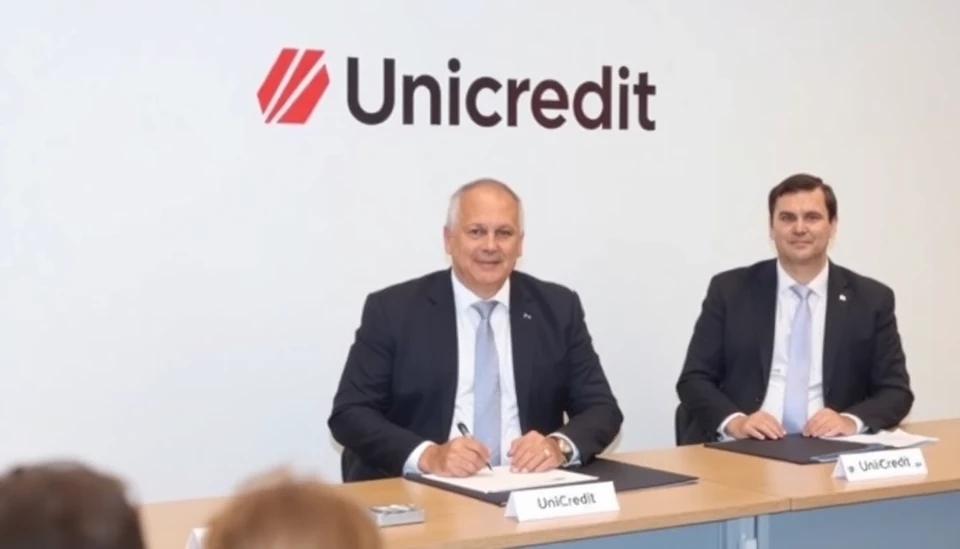
In a significant development for the banking sector in Italy, UniCredit is currently navigating a complex landscape as it seeks regulatory approval for its proposed acquisition of Banco BPM. The Italian government has indicated that it will impose certain conditions that UniCredit must meet before it can proceed with its bid. This scrutiny comes amid concerns over potential impacts on competition and job security within the banking industry.
The proposed merger is poised to create a powerhouse in the banking market, enabling UniCredit to strengthen its position against other financial giants. However, sources familiar with the situation have revealed that government officials are particularly wary. They have raised alarms over how the merger could limit consumer choice and potentially lead to a reduction in services across the sector.
UniCredit's desire to acquire Banco BPM is driven by a strategic vision to enhance its market footprint. Analysts suggest that the merger could lead to increased efficiencies and a broader array of financial products being offered to consumers. Nonetheless, the government’s recent stance signals that the road to the acquisition may be a bumpy one, filled with negotiations and potentially long delays.
Moreover, the government’s conditions are expected to include specific commitments from UniCredit regarding the preservation of jobs within Banco BPM, as well as assurances that the bank will maintain a strong presence in its local markets. These stipulations aim to address growing public concerns over mergers leading to job losses, especially in areas that rely heavily on banking services.
In response to the governmental pushback, UniCredit officials have expressed confidence that they can meet the requirements set forth by regulators. They are reportedly preparing to present a detailed plan that addresses the government’s concerns, which may include proposals for investments in local services and initiatives designed to support employee retention.
This move by the government and the ensuing discussions reflect a broader trend in the European banking industry, where regulators are increasingly vigilant regarding mergers and acquisitions. The Italian banking sector, in particular, has seen a series of consolidations in recent years, resulting in fewer, larger banks dominating the market. This has evoked mixed reactions from consumers and businesses alike, pushing authorities to take a more active role in overseeing such significant transactions.
As the landscape continues to evolve, stakeholders from various sectors are closely monitoring the situation, with many anticipating that the outcome of this bid could set important precedents for future banking mergers in Italy and beyond.
In conclusion, the fate of UniCredit's bid for Banco BPM hinges not only on its financial viability but also on its ability to respond effectively to the governmental regulations aimed at protecting jobs and ensuring competitive market practices. This ongoing saga reflects the balancing act that financial institutions must navigate in the current economic environment.
#UniCredit #BancoBPM #BankingMergers #ItalyBanking #RegulatoryApproval #MarketCompetition #JobSecurity #FinanceNews
Author: Samuel Brooks




